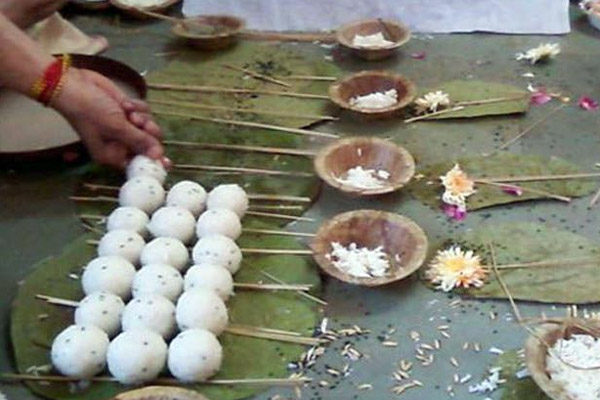Pitru Paksha is a significant period in the Hindu lunar calendar dedicated to the remembrance and honoring of one’s ancestors, also known as “Pitrus.” It usually falls in the month of Bhadrapada (usually in September-October), right after the full moon day (Purnima), and continues for 15 lunar days until the new moon day (Amavasya). The term “Pitru Paksha” translates to “fortnight of the ancestors.”
This year, Pitru Paksha is starting on September 17 and will end on October 2, Sarvapitre Amavasya. According to religious beliefs, charity is considered to be of special importance during Pitru Paksha or Shradh Paksha, which brings blessings to ancestors.
Key Elements of Pitru Paksha:
Shraddha Rituals: The primary focus of Pitru Paksha is performing Shraddha (rituals for the deceased). Families offer food, water, and prayers to their ancestors, typically near water bodies like rivers or ponds, believing it will give peace to the departed souls.
Tarpan: This is the act of offering water mixed with sesame seeds, barley, and sometimes rice, as a form of tribute to ancestors. This is often done alongside the Shraddha ceremonies.
Mahalaya Amavasya: The last day of Pitru Paksha is considered the most significant. It is called Mahalaya Amavasya or Sarva Pitru Amavasya and is believed to be the day when all ancestors, regardless of their date of passing, are remembered.
Respecting Elders and Traditions: It’s a time to honor the legacy and wisdom of one’s forefathers. Offering food to crows, as they are believed to be messengers of the ancestors, is another common practice.
Fasting and Vegetarian Food: Many people observe fasts or avoid non-vegetarian food during this period as a mark of respect.
The significance of Pitru Paksha in Hindu tradition is deeply rooted in honoring one’s ancestors and performing rituals to ensure their peace in the afterlife. It is believed that showing respect and offering prayers during this period brings blessings to the family, helps clear any ancestral debts (Pitra Rin), and strengthens the bond between the living and the departed.
Here are the key aspects of its significance:
Ancestral Gratitude
Pitru Paksha is primarily about expressing gratitude and respect towards one’s ancestors. Hindus believe that their well-being in life is influenced by the blessings of their ancestors. The Shraddha rituals and offerings during this period are acts of remembering and thanking them for the legacy they have passed down.
Spiritual Duty (Dharma)
In Hinduism, it is considered a duty (dharma) to perform rituals for one’s deceased parents, grandparents, and ancestors. By doing so, descendants help the souls of their forefathers achieve liberation (moksha) from the cycle of rebirth and attain peace. This obligation, known as Pitra Rin (debt to ancestors), is a key aspect of the Pitru Paksha.
Relief from Pitra Dosha
According to Vedic astrology, a person can be afflicted by Pitra Dosha, which occurs when the ancestral spirits are dissatisfied or not properly honored. This can manifest as difficulties in the family, like obstacles in career, health, or relationships. By observing Pitru Paksha rituals, devotees believe they can alleviate this dosha and invite positive changes.
Ensuring Good Karma and Blessings
Performing Shraddha and Tarpan is considered a way to not only ensure peace for departed ancestors but also to secure their blessings for the present and future generations. Ancestors are believed to bless their descendants with prosperity, health, and success in life when remembered and honored.
Cycle of Life and Death
Pitru Paksha symbolizes the continuity of life through generations and the importance of maintaining a spiritual connection with one’s roots. It highlights the transient nature of life and the importance of caring for one’s family lineage both in life and after death.
Tying the Present with the Past
This period serves as a reminder of the interconnectedness of the past, present, and future. Ancestors are seen as integral to the family’s success and prosperity, and respecting them during Pitru Paksha is a way of continuing the cycle of familial and spiritual support across generations.
Purification of the Soul
The rituals and prayers during Pitru Paksha are also seen as a way of purifying one’s soul. Offering food, water, and prayers to the deceased brings peace to the souls of the departed, while also fostering spiritual growth and inner peace for those performing the rituals.
Thus, Pitru Paksha is a period of reverence, responsibility, and spiritual connection that has deep cultural and religious meaning in Hindu society.
Performing these rituals during Pitru Paksha is believed to help free the souls of the ancestors from any lingering issues and ensure their well-being in the afterlife. It is also believed to bring blessings and good fortune to the current and future generations.

